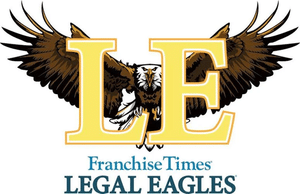You want to go into business for yourself, but you don’t want to reinvent the wheel. First, that may be a wise move. Starting a business from scratch is a huge undertaking and you learn your lessons the hard way, over a long period of time and often after wading through a lot of unexpected expense. Second, we are lucky in the U.S., to have other, somewhat simpler options that avoid some of the pitfalls new business owners may find themselves climbing out of.
One is a franchise, the other a business opportunity. Both are regulated by federal and state law. Both come to you ready to operate, like a “business in a box,” and both can lead to the kind of professional future you’ve always dreamed of having. There are some differences, however, and before taking the leap toward either one of them, there are some things you should know.
What is a Franchise?
Let’s remind ourselves of the definition of a franchise: According to the Federal Trade Commission (FTC), a franchise is defined as the following:
- The franchisee (you) will obtain the right to operate under the franchisor’s trademark, including offering services or products associated with that trademark.
- The franchisor has significant authority over how the franchisee runs the business and may offer support and guidance to the franchisee.
- The franchisee has paid the franchisor a minimum of $500 in the first six months for products, fees, support, etc.
Sounds good, right? Franchises are highly regulated, protecting both the franchisor and franchisee. By law, you would be presented with a Franchise Disclosure Document (FDD) that outlines every expense and expectation, and then you would enter into a Franchise Agreement that spells out the relationship between you and the franchisor. Because of what you get with a franchise package – virtually everything you need to start the business, plus ongoing guidance and support with operations, marketing, IT, and more throughout the life of the business – you can expect to pay a hefty sum, including royalties, advertising, and technology fees. Franchising is a way of owning a business without being alone in a business. That also means you must tow the company line, leaving little room to individualize your business. You paid for a brand, you operate the way the brand wants you to operate, with zero wheel-recreating.
What is a Business Opportunity?
A business opportunity, or biz op, is similar to a franchise but with a few subtle differences. There are state and federal laws to protect both seller and buyer of the business, but there is no FDD. A biz op likely costs less because typically, there is no ongoing relationship or support by the seller after business operations are set up. For those business owners who like to put their own spin on things, a biz op may be a better fit because once you buy the business, you can tweak it and operate it however you like or with few required guidelines. A business opportunity is much less structured than a franchise opportunity.
Deciding Between a Franchise and a Business Opportunity
If you like structure and have the money, a franchise may be a better choice. However, if you want to pay less, have more control over your concept, and are willing to give up any ongoing business support, then a business opportunity may be just right. No matter which you explore, the very first step should be understanding the federal and state law requirements that come with each. From there, you can make your decision one step at a time, as you explore and discover the intricacies of each opportunity.
Not sure how to get started? Contact Spadea Lignana for a free consultation to discuss your franchising legal needs.







